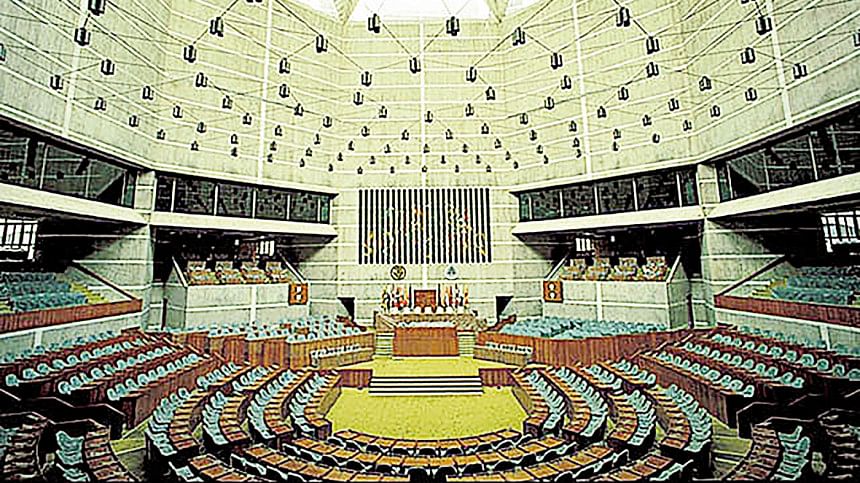Rethinking our parliamentary accountability

Bangladesh is a parliamentary democracy with a constitutional mandate for responsible government. Responsible government is a conception of a system that embodies the principle of parliamentary accountability. Theoretically, Bangladesh is able to practice collective responsibility by deploying 'no confidence motion'. Article 55 of the Constitution of Bangladesh (COB) clearly states that the Cabinet shall be collectively responsible to the Parliament, which implies that if any matters go against their constitutional promise, the Parliament has the authority to move a motion of no confidence and force the Prime Minister, and even the entire regime, to resign from office. To pass the 'no confidence motion', a majority vote from the Parliament is required. But, here article 70 of the COB remains a bar to obtain the necessary majority votes and ultimately renders the concept of collective responsibility ineffective.
Article 70 of the Constitution states that if a member of Parliament belonging to a political party resigns or votes against the party under which he is elected, he shall vacate his seat. Because of this article, the lawmakers belonging to the ruling party, who usually tend to be the majority in number, are prevented from casting their votes against their party in the 'no confidence motion.' Consequently, it is not possible to hold the Cabinet accountable to the Parliament.
One may argue that Parliament may hold the administration accountable through the parliamentary standing committees. It is mandated in rule 246 of the Rules of Procedure of Bangladesh Parliament that every Ministry must have a standing committee. Article 76 of the COB states that the committee shall investigate or inquire into the activities or administration of a Ministry and may require it to furnish, through an authorised representative, relevant information and to answer questions, orally or in writing. Based on its investigation, it will prepare a report to submit to the Parliament. The idea behind it is the Parliament will consider the report and will take action as the report suggests, ranging from making the minister resign or taking action against concerned officials and thereby holding them accountable. Unfortunately, this report does not have any binding effect, and ultimately it is rare in the history of Bangladesh that any significant action has ever been taken against anyone based on such report.
The Constitution strategised many mechanisms which in the end creates a space for the Parliament to hold the ministers answerable but not accountable in the true sense. An effective accountability mechanism requires the guarantee of two elements— answerability and consequences, and here, in Bangladesh the answerability element is in place but there is no mechanism to make them face consequences. Consequently, we see that our democratic system gets compromised.
A sustainable parliamentary democracy in Bangladesh requires an accountable government and a performance-oriented, impartial civil service, both of which can only be achieved through reforming the present system of parliamentary accountability.
It is imperative to give these concerns priority. In this case, powerful standing committees with the ability to make binding decisions would be useful. Article 70 of the Bangladesh Constitution ought to be changed to allow parliamentarians to vote against their party. Only then would it be possible to pass a "no confidence motion" against the ruling government, which would hold them accountable for their actions. Side by side, mechanisms should be developed to hold the ministers personally accountable for any actions in their ministry. In sum, a sustainable parliamentary democracy in Bangladesh requires an accountable government and a performance-oriented, impartial civil service, both of which can only be achieved through reforming the present system of parliamentary accountability.
The writer is Assistant Professor, Premier University, Chittagong.

 For all latest news, follow The Daily Star's Google News channel.
For all latest news, follow The Daily Star's Google News channel. 



Comments